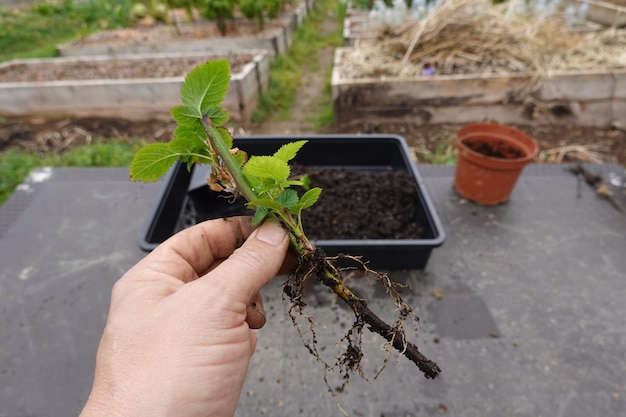How Biological Fertilizers Strengthen Root Development
Healthy roots are the foundation of thriving plants, and their development determines how well crops grow, resist stress, and yield results. Farmers and gardeners alike understand that while water, sunlight, and soil are essential, nutrients play a critical role in root health. In recent years, there has been a growing shift from chemical-heavy solutions to more sustainable, natural methods of enriching soil and supporting root systems. Biological fertilizers, often referred to as biofertilizers, have emerged as a powerful tool in promoting strong, resilient roots while ensuring environmental safety.

Understanding the Power of Biological Fertilizers
Biological fertilizers work by harnessing the natural processes of beneficial microbes to improve soil fertility and plant growth. Unlike synthetic alternatives, they do not overload the soil with chemicals but instead enhance its organic content. Products such as bio growth organic fertilizer introduce essential microorganisms that help break down nutrients, making them more accessible to plants. These microorganisms also stimulate root elongation and branching, ensuring plants establish a robust underground system capable of absorbing water and nutrients effectively.
Improving Soil Health Naturally
One of the key advantages of biological fertilizers is their ability to restore soil health. Modern farming practices often deplete soils, stripping them of nutrients and microbial diversity. Biofertilizers replenish this balance by reintroducing beneficial bacteria and fungi. These organisms improve soil structure, increase its water-holding capacity, and reduce compaction, creating an environment where roots can spread freely. Healthy soils not only benefit current crops but also ensure long-term fertility for future planting seasons.
Enhanced Nutrient Absorption
Roots serve as the gateway for plants to access the nutrients they need for survival. Biological fertilizers release nutrients gradually, ensuring a consistent supply to the root zone. Microbes in biofertilizers break down organic matter into forms that plants can readily absorb. This process supports the uptake of key nutrients like nitrogen, phosphorus, and potassium, which are critical for root and overall plant development. The steady nutrient flow prevents deficiencies and supports continuous growth throughout the plant’s lifecycle.

Strengthening Roots Against Stress
Plants often face challenges such as drought, soil salinity, and pest attacks. Strong root systems are essential for withstanding these stresses. Biological fertilizers enhance root resilience by encouraging deeper root penetration and increasing the root surface area. This allows plants to access water stored deeper in the soil and better withstand dry conditions. Additionally, certain microbes form protective relationships with roots, shielding them from harmful pathogens. With biofertilizers, plants are better equipped to adapt and survive under tough conditions.
Supporting Sustainable Farming Practices
Beyond crop growth, biological fertilizers contribute to environmental sustainability. Unlike chemical fertilizers, they do not pollute groundwater or degrade soil quality over time. Their natural formulation aligns with organic farming principles, making them an excellent choice for eco-conscious farmers. By incorporating biological fertilizers into farming systems, agricultural communities can reduce their reliance on synthetic inputs while still maintaining high productivity. This approach not only benefits the environment but also supports healthier food production.
Long-Term Benefits for Farmers and Gardeners
While chemical fertilizers may provide quick results, their long-term consequences often include soil degradation and reduced fertility. Biological fertilizers, on the other hand, build soil health gradually, ensuring that productivity is sustained over many growing cycles. Farmers and gardeners who use products like bio growth organic fertilizer often notice improved crop quality, healthier plants, and reduced input costs over time. By investing in the soil’s natural ecosystem, they ensure stable harvests and greater returns in the long run.
Conclusion
Biological fertilizers have revolutionized the way we think about plant nutrition and soil health. By strengthening root systems, improving nutrient uptake, and enhancing resilience to stress, they provide a sustainable alternative to chemical fertilizers. They nurture both plants and the environment, ensuring that farming and gardening practices remain productive and responsible. Whether used in large-scale agriculture or home gardens, biofertilizers play a vital role in building strong foundations for healthy crops. As awareness grows, more farmers and gardeners are turning to these natural solutions, ensuring that the future of farming is as sustainable as it is fruitful.

